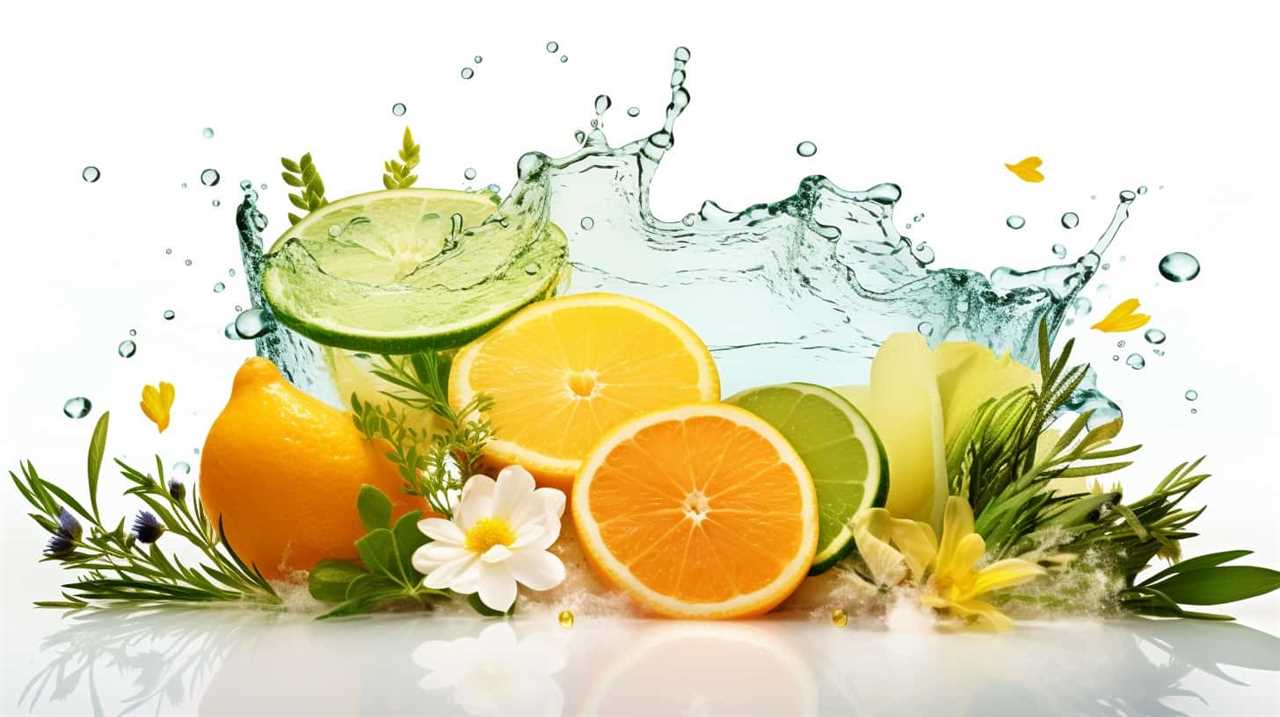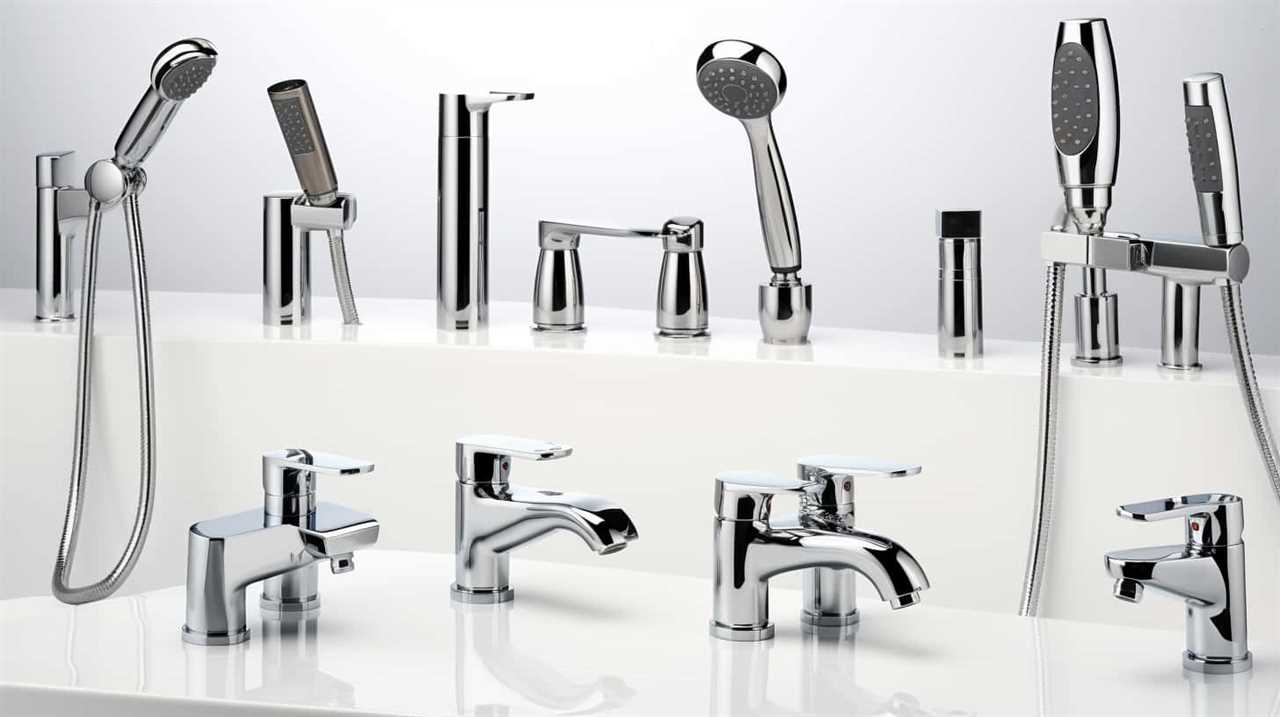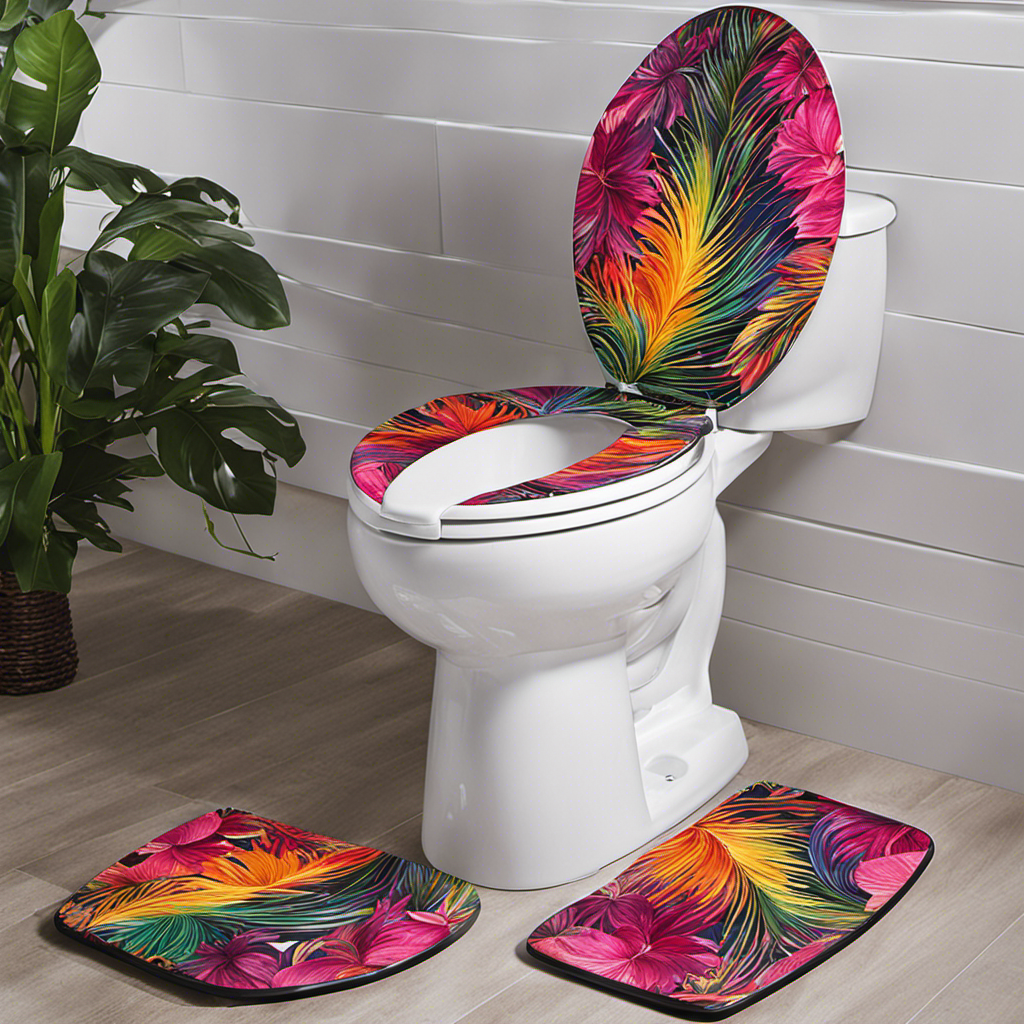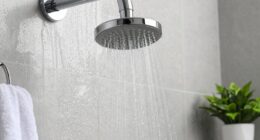Have you ever thought about what is hiding below the surface of your bathtub water?
We dive deep into the world of bath water to uncover its secrets and unveil the potential health effects it may have on our bodies.
From common ingredients to surprising contaminants, we explore the facts and provide tips on how to improve the quality of your bath water.
Join us on this journey as we seek to master the art of bathing and make informed choices for our well-being.

Key Takeaways
- Common ingredients in bath water include baking soda, citric acid, Epsom salt, essential oils, and cucumber/citrus fruits.
- Surprising contaminants in bath water can include chlorine, lead, personal care product chemicals, microplastics, and pesticides/herbicides.
- Bath water may have potential health effects such as skin irritation, allergies, respiratory issues, and difficulty breathing.
- To improve the quality of bath water, install water filters, use bath salts, clean and maintain the bathtub, use natural bath products, and consider eco-friendly alternatives like rainwater collection.
Common Ingredients in Bath Water
We often wonder what goes into our bath water, and the truth is that there are many common ingredients that we may not even realize are there.
When it comes to bath bomb recipes, there are a few key components that give them their fizz and fragrance. Baking soda is a primary ingredient, which reacts with citric acid to create the fizzing sensation. Epsom salt is another common additive, known for its soothing and muscle-relaxing properties. Essential oils are often used to add fragrance and therapeutic benefits to the bath water. Some popular choices include lavender for relaxation and eucalyptus for respiratory relief.
Surprising Contaminants in Bath Water
As we explore the composition of bath water, it’s important to acknowledge the presence of surprising contaminants that can be found in our tubs. While we may consider bath water to be clean and refreshing, it can actually contain potential risks in the form of chemical exposure.
One surprising contaminant is chlorine, which is commonly used to disinfect water but can react with organic matter to form harmful byproducts.

Another unexpected contaminant is lead, which can leach into bath water from old plumbing pipes or fixtures.
Additionally, certain personal care products like shampoos and soaps can introduce chemicals such as phthalates and parabens into bath water.
These contaminants pose a potential risk to our health and highlight the importance of being aware of the composition of bath water to minimize chemical exposure.
Potential Health Effects of Bath Water
After examining the surprising contaminants in bath water, it’s essential to consider the potential health effects associated with its use.

The effects on the skin are one major concern. Bath water may contain chemicals, bacteria, and other substances that can irritate or damage the skin. This can lead to dryness, redness, and itching, especially for individuals with sensitive skin. Additionally, prolonged exposure to certain contaminants in bath water, such as chlorine or heavy metals, may cause skin allergies or rashes.
Another potential health effect is the impact on the respiratory system. Steam from hot bath water can be inhaled, introducing contaminants into the lungs. This can potentially cause respiratory irritation, coughing, and difficulty breathing, particularly for individuals with pre-existing respiratory conditions.
It’s important to be aware of these potential health effects and take appropriate measures to minimize exposure to contaminants in bath water.
How to Improve the Quality of Your Bath Water
To improve the quality of our bath water and minimize exposure to contaminants, there are several steps we can take. Here are three effective methods:

- Install water filters: Investing in a reliable water filtration system can significantly improve the quality of your bath water. These filters are designed to remove impurities, such as chlorine, heavy metals, and bacteria, ensuring cleaner and safer water for bathing.
- Use bath salts: Adding bath salts to your bathwater can enhance its quality by providing various benefits. Bath salts contain minerals like magnesium and potassium, which can help to soften the water, promote relaxation, and soothe the skin. Additionally, they can help to detoxify the body and relieve muscle tension.
- Regularly clean and maintain your bathtub: Keeping your bathtub clean is crucial for maintaining the quality of your bath water. Regularly scrubbing and disinfecting your bathtub can prevent the buildup of bacteria, mold, and other contaminants that can affect the water’s quality.
Eco-Friendly Alternatives to Traditional Bath Water
To explore eco-friendly alternatives to traditional bath water, we can consider sustainable options that minimize resource consumption and environmental impact. Natural alternatives such as rainwater collection and filtration systems offer a renewable and chemical-free option for bathing. These systems can be installed to capture rainwater, which can then be treated and used for bathing purposes. Another sustainable option is using biodegradable bath products that are made from natural ingredients and do not contain harmful chemicals. These products are not only better for the environment but also for our skin and overall health. Additionally, reducing the length and frequency of baths can help conserve water and energy. By adopting these sustainable practices, we can minimize our ecological footprint while still enjoying a refreshing and relaxing bath.
| Natural Alternatives | Sustainable Options |
|---|---|
| Rainwater collection and filtration systems | Biodegradable bath products |
| Renewable and chemical-free option | Made from natural ingredients |
| Capture rainwater, treat, and use for bathing | Better for the environment, skin, and health |
| Reducing length and frequency of baths | Conserves water and energy |
Frequently Asked Questions
Can You Drink Bath Water?
Yes, we can drink bath water, but it is not recommended due to health risks. There are safer drinking alternatives available, such as tap water or bottled water, which are regulated for consumption.
How Often Should I Change My Bath Water?
We should change our bath water regularly to maintain hygiene. Bathing with essential oils offers various benefits, such as relaxation and skin nourishment. Additionally, using different types of bath salts can enhance the overall bathing experience.
Can I Use Bath Water to Water My Plants?
Sure, we can use bath water to water our plants. It’s a great way to conserve water and reduce waste. Additionally, we can also use bath water for cleaning or flushing toilets, finding alternative uses for it.

Is It Safe to Bathe in Bath Water With a Cut or Open Wound?
When bathing with a cut or open wound, it is not safe to use bath water. There are potential medical implications, such as infection. Instead, consider using alternative methods, such as cleaning the wound separately or using a shower.
Can I Reuse Bath Water for Other Household Chores?
Yes, we can reuse bath water for other household chores. It reduces water waste and saves money. Benefits of using bath water for cleaning include its mild detergent properties and the fact that it’s already warm.
Conclusion
In conclusion, taking a bath in clean, refreshing water is a rejuvenating experience that can wash away the stresses of the day.
However, it’s important to be aware of the potential contaminants that can lurk in bath water.

By understanding the common ingredients and surprising contaminants, and taking steps to improve the quality of our bath water, we can ensure a healthier and more enjoyable bathing experience.
So, let’s dive into a bath that’s as pure as a crystal-clear spring!









